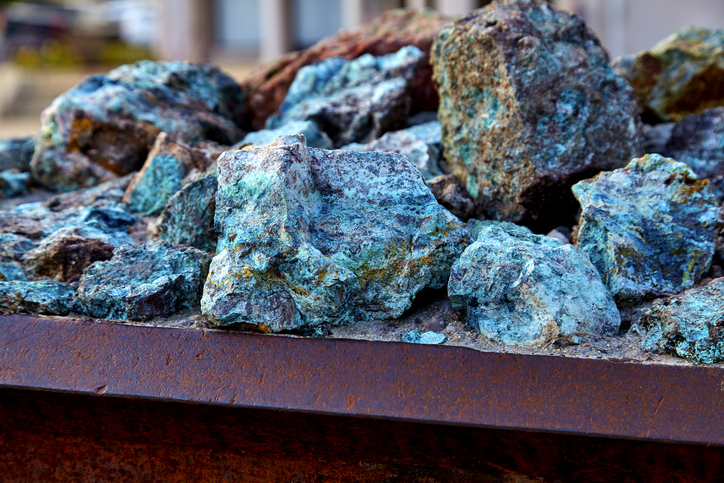The European Critical Raw Materials Act: what does it mean for the cobalt industry?
The Critical Raw Materials Act (CRMA) is the EU’s flagship legislation on critical raw materials (CRMs). The purpose of the act is to secure the EU’s supply of CRMs by improving supply chain resilience, boosting domestic output, and promoting a circular CRM economy. The CRMA recognises cobalt as a ‘strategic raw material’, identifying the metal as having strategic importance for advanced technologies and the green transition, and allowing access to finance and streamlined development of projects relating to the exploration, refining, and recycling of cobalt. New obligations will also be levied on some companies in the cobalt value chain, including mandating downstream companies to conduct risk assessments of their supply chains.
Earlier this year, the European Council approved the final text of the European Critical Raw Materials Act (CRMA), marking a significant milestone in the European Union's efforts to secure its supply of critical raw materials (CRM). The CRMA is a key component of the EU’s Green Deal Industrial Plan, which aims to enhance the bloc’s manufacturing capacity for net-zero technologies essential to achieving its ambitious climate goals.
The CRMA identifies 34 critical raw materials, with 17 – including cobalt – designated as ‘strategic’. These strategic materials are deemed crucial for technologies central to the EU’s plans for the green transition, digital innovation, defence, and aerospace.
For mining companies and others within the CRM supply chain, the CRMA offers access to public and private financing for ‘Strategic Projects’. The stated aim of such projects is to increase and secure domestic CRM supply. The CRMA will also offer shorter permitting timeframes – 27 months for extraction permits and 15 months for processing and recycling permits – to condense the gap between the discovery of a mineral and its mining.
Strategic Projects are also mandated to meet certain environmental and social standards, including, among others, the consideration of the rights of Indigenous Peoples, labour rights, quality job creation, and meaningful engagement with local communities. The European Commission will have the authority to withhold the designation of a project as strategic if these criteria are not met.
The CRMA also imposes new obligations on large downstream companies that use strategic raw materials in manufacturing products such as batteries, advanced chips, and renewable energy technology. These companies are required to conduct comprehensive risk assessments of their upstream supply chains, map risks to supply chain continuity, and act if vulnerabilities are found.
In addition to supporting new projects, the CRMA promotes the circularity and recycling of CRMs within the EU. Member States are required to implement national programs to improve the collection and recycling of CRM-rich waste and ensure its recycling into secondary critical raw materials, and the Act also encourages the exploration of CRM recovery from extractive waste as well.
What does the CRMA mean for companies operating in the cobalt value chain?
The CRMA will allow companies in the cobalt value chain to apply to have their projects labelled ‘strategic’. Companies operating a strategic project will find themselves more easily able to access finance.
However, large downstream companies will be expected to conduct risk assessments of their supply chains. If these assessments reveal significant risks – such as environmental concerns or human rights violations – these companies are required to take action to mitigate them.
As a result of these new requirements, upstream companies in the cobalt supply chain should anticipate a greater number of information requests from buyers down the supply chain and should make sure relevant policies and processes are in place, and relevant data is on hand, in preparation of this.
Finally, though the CRMA is a world-leading piece of legislation, we may see other jurisdictions follow suit. It is therefore important to recognise the fact that the CRMA is not an outlier, but the beginning of a new trend of hard law legislation. Cobalt companies should prepare for that inevitability.
By Alec Popper, Responsible Sourcing and Sustainability Officer, Cobalt Institute

